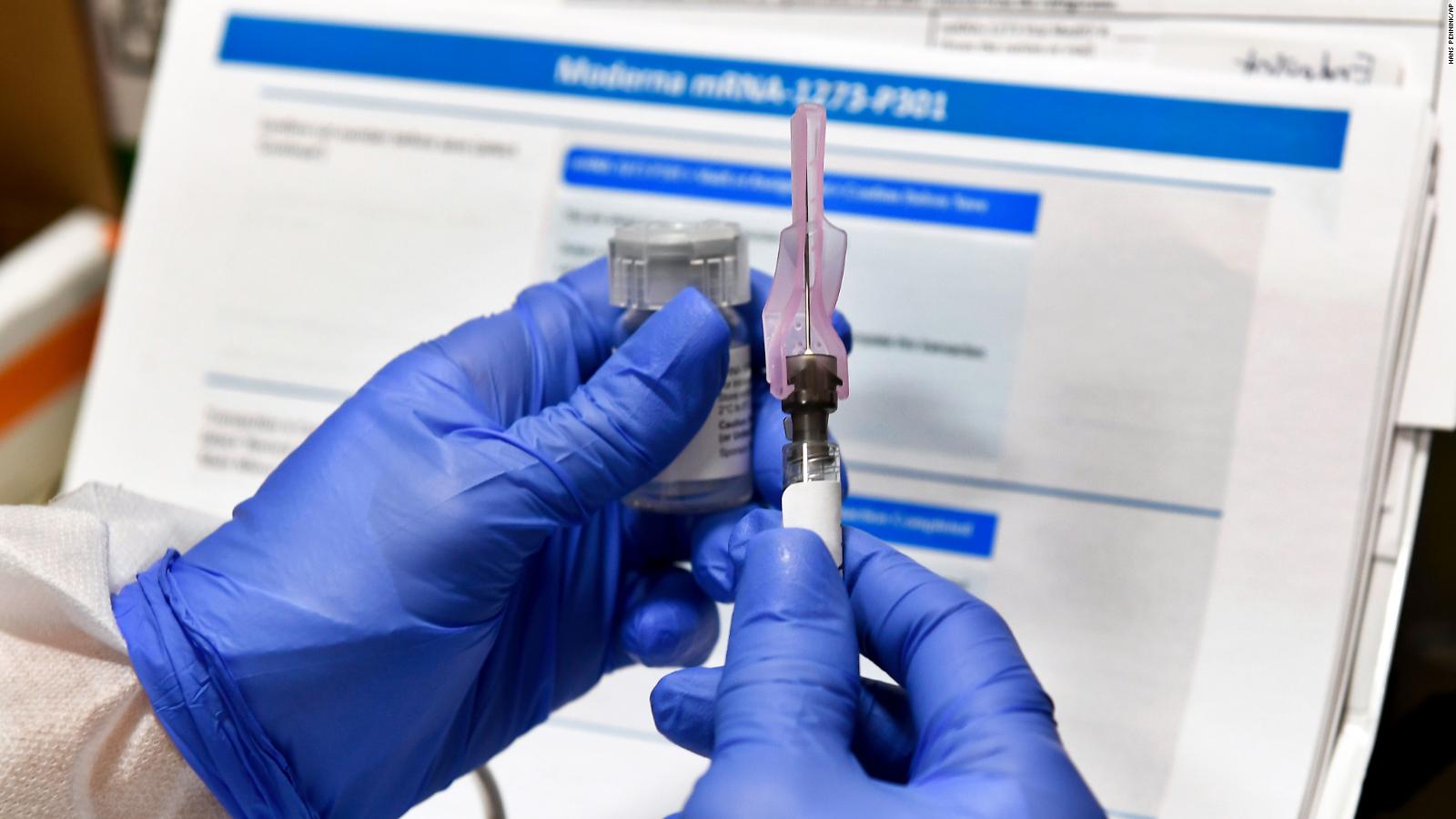
(CNN) – Vaccine advisers to the U.S. Food and Drug Administration (FDA) readily and quickly voted to recommend that the agency grant an emergency use authorization (EUA) for the coronavirus vaccine. by Moderna.
Hours later, senior FDA officials said they intended to act quickly with the US.
“Following the positive outcome of today’s advisory committee meeting regarding Moderna’s Covid-19 vaccine, the US Food and Drug Administration has informed the sponsor that it will work quickly to make a conclusion and a emergency authorization, ”said Dr. Stephen Hahn, FDA Commissioner, and Dr. Peter Marks, director of the FDA’s Center for Biological Research and Evaluation, in a statement.
“The agency has also notified the US Centers for Disease Control and Prevention and Operation Warp Speed so that they can implement their plans for the timely distribution of the vaccine.”
The Vaccine and Related Biological Products Advisory Commission (VRBPAC) voted 20-0, with one abstention, to recommend an EUA for the Moderna vaccine, which is very similar in design, composition, safety and efficacy to the Pfizer / BioNTech Vaccine. That was the only question facing the committee: whether or not to recommend the EUA.
“I have no doubt that the data … it appears that the benefits outweigh the risks, as I have seen,” said committee member Dr. Steven Pergam of the University of Washington and the Cancer Research Center. Fred Hutchinson, before the vote.
However, that didn’t stop the group of academics, doctors, public health specialists and others from having a lengthy discussion about whether Moderna should offer the vaccine to people who have been given saline, something that could lead to a reduction in long-term data on the efficacy and safety of the vaccine in protecting humans against infection.
“Academics have a way of getting involved in the details, and what we’ve been doing for the past eight or nine hours is going through the details,” said Dr. Arnold Monto, an infectious disease specialist and professor of epidemiology at the University of Michigan. who chairs the panel.
He noted that the vote this time was more one-sided than last week to recommend the Pfizer / BioNTech vaccine, which received 17 votes in favor, 4 against and 1 abstention.
“And some people took the problems last week, especially those involving the different age groups, the 16 and 17 year olds, to make the decision they made, which was clearly based on that issue and not the overwhelming evidence. that the risk is less than a benefit, a clear benefit, of these vaccines.
The Moderna vaccine uses technology very similar to that of Pfizer / BioNTech: messenger RNA or mRNA. The genetic material prompts the body to produce compounds that look like the outside of the coronavirus, which in turn triggers an immune response that protects against infection.
Each vaccine is approximately 95% effective in the prevention of symptomatic diseases with few side effects.
When the vote began, a committee member noted that they had been presented with a visual slide detailing the past weeks’ vote on the vaccine from Pfizer and its partner BioNTech, which is already being distributed under an FDA EUA. . Monto, clearly amused, changed the slide, and the mood went on with proper language about Moderna’s vaccine.
Only one adviser abstained, saying he did so because he wanted a more limited recommendation.
Dr. Michael Kurilla, who is director of the Clinical Innovation Division of the National Center for the Advancement of Translational Sciences, abstained from Thursday’s vote to recommend the EUA.
“I abstained because I feel very uncomfortable with the language. I think in the midst of a pandemic, and with a limited supply of vaccines available, the general statements for people 18 or older are too broad, ”said Kurilla after the vote, which ended 20-0 with only his abstention .
“I am not convinced that for all those age groups the benefits outweigh the risks, and I would prefer it to be more focused on people at high risk for serious and life-threatening covid disease,” added Kurilla, whose institute is a part of the National Institutes of Health. Health. The committee was not given that option.
“I would have preferred a comprehensive access program instead of an emergency authorization path. I think it would have given us many more options to continue collecting the data, ”he added.
Dr. Oveta Fuller, associate professor of microbiology at the University of Michigan School of Medicine, who voted against the Pfizer / BioNTech EUA, agreed with Kurilla but voted to recommend the Moderna injection.
“I didn’t think an AUS was the best choice, but since the train left the station, I’m grateful that Moderna has given us a very transparent and comprehensive study that even seemed to be very well organized from the start,” said Fuller.
Dr. James Hildreth, president of Meharry Medical College, emphasized the historic nature of the two voices that are rapidly coming together for new vaccines to fight a pandemic.
“What a remarkable scientific achievement this is,” said Hildreth. “Going from one sequence of a virus in January to two vaccines in December is a remarkable achievement.”
Moderna says it will continue to collect safety data on the vaccine.
“We look forward to bringing our vaccine to people in the US to help address this ongoing public health emergency,” said Stéphane Bancel, Moderna’s CEO, in a statement.
CNN’s Samira Said contributed to this story.